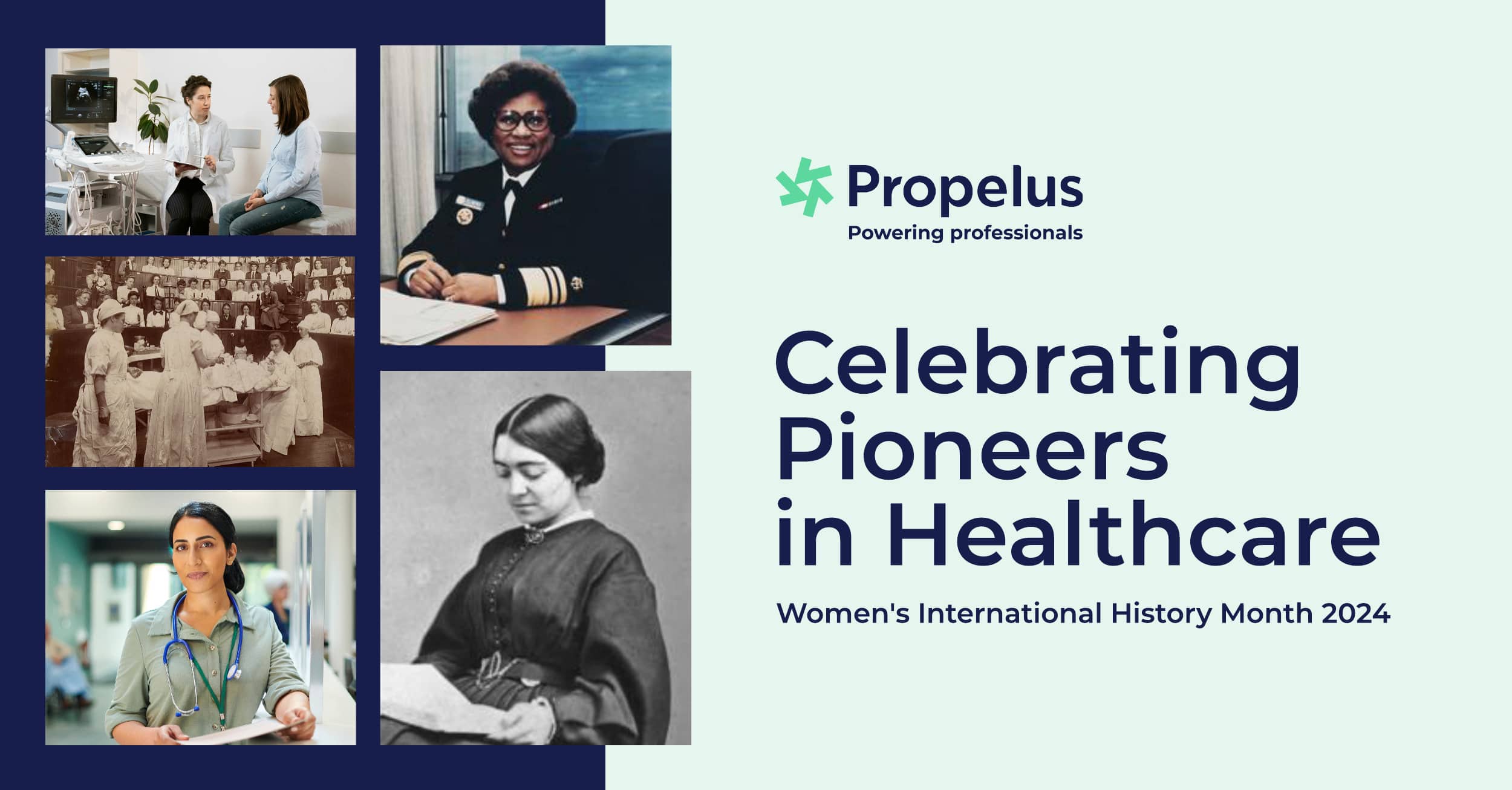In honor of Women’s History Month, we want to take a moment to officially recognize the invaluable contributions of women to the healthcare industry. Women have played a crucial role in shaping the field of medicine, from pioneering groundbreaking medical advancements to advocating for gender equity in healthcare.
Today, women make up 67% of the global health and social care workforce and provide essential health services for around 5 billion people worldwide.
Let’s take a look at some of healthcare’s pioneers and innovators.
The pioneers
- Elizabeth Blackwell, MD: In 1849, Elizabeth Blackwell became the first woman in the United States to earn a medical degree. She co-founded the New York Infirmary for Indigent Women and Children to serve the poor, paving the way for future generations of women in medicine.
- Mary Edwards Walker, MD: Dr. Mary Edwards Walker became the first female surgeon in the U.S. Army during the Civil War, despite facing discrimination and challenges due to her gender.
- Rebecca Lee Crumpler, MD: Dr. Rebecca Lee Crumpler became the first black American woman to earn a medical degree in 1864. She cared for freed slaves and published a medical book to share her knowledge.
- Sister Mary Bernard: In 1877, Sister Mary Bernard became the first officially recognized nurse anesthetist, breaking barriers in the field of anesthesia.
The innovators
- Clara Barton: Founder of the American Red Cross, Clara Barton dedicated her life to providing medical care and relief during times of disaster.
- Gerty Theresa Cori, PhD: Dr. Gerty Theresa Cori became the first woman to win a Nobel Prize for Physiology or Medicine in 1947 for her discoveries in glucose metabolism.
- Virginia Apgar, MD: Dr. Virginia Apgar created the Apgar score for assessing newborns’ health, revolutionizing neonatal care.
- Loretta Ford, EdD, PNP: Co-founder of the first nurse practitioner program, Dr. Loretta Ford expanded the role of public health nurses to focus on illness prevention and health promotion.
- Patricia Bath, MD: Dr. Patricia Bath invented the Laserphaco Probe for cataract treatment, making cataract surgery more precise and less painful.
- Antonia Novello, MD: Dr. Antonia Novello became the first woman and the first Hispanic to serve as U.S. surgeon general, focusing on public health issues such as AIDS research and domestic violence.
- Nancy W. Dickey, MD: Dr. Nancy W. Dickey became the first female president of the American Medical Association, advocating for women’s health issues and healthcare reform.
The challenges
But despite significant contributions, women in healthcare often encounter various challenges that hinder their professional growth and advancement. Those challenges include:
Discrimination
Women in healthcare often face discrimination based on their gender. Think: being passed over for promotions, receiving lower salaries compared to their male counterparts, and encountering biased treatment in the workplace.
Occupational segregation
Women in healthcare are frequently clustered into lower-status and low-paid roles, such as nursing and administrative positions, while men are more likely to occupy higher-paying and leadership roles. This occupational segregation contributes to the gender pay gap and limits women’s opportunities for career advancement.
Unequal pay
Even though women make up a significant portion of the healthcare workforce, they continue to earn less than men (regardless of roles). This disparity in pay not only affects women’s financial well-being but also perpetuates gender inequality in the workplace.
Supporting Strategies
To address these challenges and empower women in healthcare, we must all make the conscious decision to implement strategies that promote gender equity and create a more inclusive work environment.
Promoting leadership development
Providing women with opportunities for leadership development can help them advance in their careers and break through the glass ceiling. Leadership programs tailored to women’s needs can equip them with the skills and confidence to take on leadership roles in healthcare organizations.
Mentorship opportunities
Mentorship programs can be instrumental in supporting women’s professional growth and development. Pairing women with experienced mentors who can provide guidance, advice, and support can help them navigate the challenges they face in their careers.
Networking initiatives
Creating networking opportunities for women in healthcare can help them build valuable connections, expand their professional networks, and access new career opportunities.
Leveraging technology
Technology can be a powerful tool for women in healthcare to manage their careers more effectively, especially for those balancing work and family responsibilities. Tools such as telemedicine, electronic health records, and online learning courses for continuing education can help women stay connected, access resources, and advance their skills.
Women in healthcare – the wrap up
Empowering women in healthcare is not just about recognizing their achievements but also about addressing the challenges they face and advocating for gender equity in the workforce.
At Propelus, our mission is to ensure healthcare professionals reach their full potential, which includes giving them the best tools to achieve professional compliance. Women have made immense contributions to the field of medicine, from pioneering groundbreaking advancements to advocating for better healthcare practices. Together, we cam help all women advance their healthcare careers.
This Women’s History Month (and every month), let’s celebrate the accomplishments of women in healthcare and continue working toward a future where gender equity is the norm.
Here’s to creating a more equitable and inclusive healthcare workforce for all.

